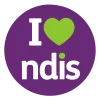If you’re new to the NDIS or navigating it for someone you care for, you might have come across two roles: Support Coordinators and Local Area Coordinators (LACs). These professionals are often the bridge between your goals and the supports that help you achieve them. They guide, connect, advocate, and simplify what can sometimes feel like a confusing or overwhelming system. While they may sound similar, they play very different roles in helping NDIS participants access and implement their NDIS plans.
In this blog, we’ll break down the difference between a Support Coordinator and an LAC. And help you understand what they do, how they help, and when you might work with each of them.
What Is a Local Area Coordinator (LAC)?
A Local Area Coordinator (LAC) is usually your first point of contact when you join the NDIS. LACs are part of partner organisations working with the National Disability Insurance Agency (NDIA). Their role is to support participants before, during, and after their NDIS planning meetings.
Key responsibilities of an LAC:
- Helping you understand the NDIS and your eligibility
- Guiding you through your initial NDIS plan meeting
- Supporting you to set goals and explore local support options
- Linking you to mainstream services like health, housing, and education
- Checking in with you during your plan to help track your progress
LACs are not NDIS staff, but they work closely with the NDIA. They don’t manage funding or provide ongoing service coordination after the plan is approved, unless no Support Coordinator is available.
What Is a Support Coordinator?
A Support Coordinator is an NDIS-funded professional who works with you after your plan is approved. Participants who receive Support Coordination funding in their NDIS plan can choose a provider to help them implement their supports.
Support Coordinators provide a more tailored and hands-on service, especially for people with complex needs, limited informal supports, or those navigating multiple providers.
Key responsibilities of a Support Coordinator:
- Helping you understand and use your NDIS plan
- Connecting you with appropriate providers and services
- Assisting with service agreements and bookings
- Troubleshooting issues with providers or services
Preparing for plan reviews and building your capacity to self-manage in future.
The Key Differences
| Feature | Local Area Coordinator (LAC) | Support Coordinator |
| Provided by: | NDIS partner organisations | Independent NDIS-registered providers |
| Do you need specific funding in your plan to use: | No, LACs are available to all | Yes, can only access if you have Support Coordination funding |
| Role starts: | During the NDIS planning stage | After you receive your NDIS plan |
| Support level: | General guidance and local connections | Hands-on support with implementation and providers |
| Best for: | Most participants with simpler needs | Participants with complex needs or limited support |
Do I Need a Support Coordinator or an LAC?
That depends on your needs and the level of support you require to implement your plan.
- If you’re new to the NDIS or have basic support needs, you’ll likely work with an LAC.
- If your plan includes Support Coordination funding, and you require more help managing your supports, you can choose a Support Coordinator.
Some participants work with both. They start with an LAC during the initial planning phase and a Support Coordinator for day-to-day support once the plan is active.
Support Coordination With Achora
Understanding the difference between a Support Coordinator and a Local Area Coordinator can help you get the right support at the right time. While both roles are essential to your NDIS journey, they serve different purposes and support levels.
At Achora, we’re here to help you make the most of your NDIS plan. If you’re eligible for Support Coordination, we’d love to work with you to make your goals a reality.
Need help understanding your plan or finding a Support Coordinator that’s right for you? Get in touch today!

